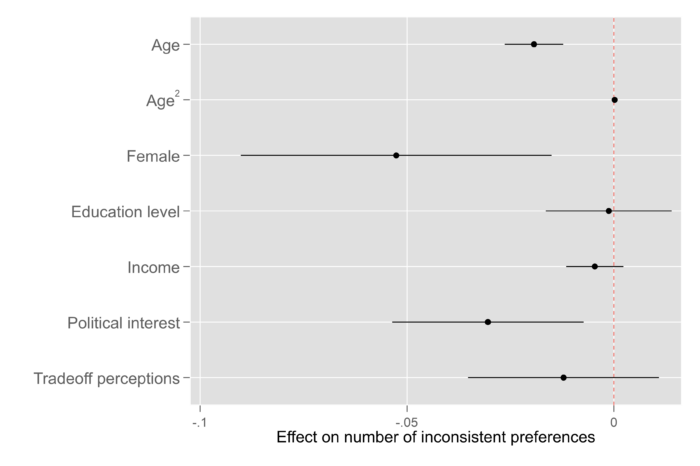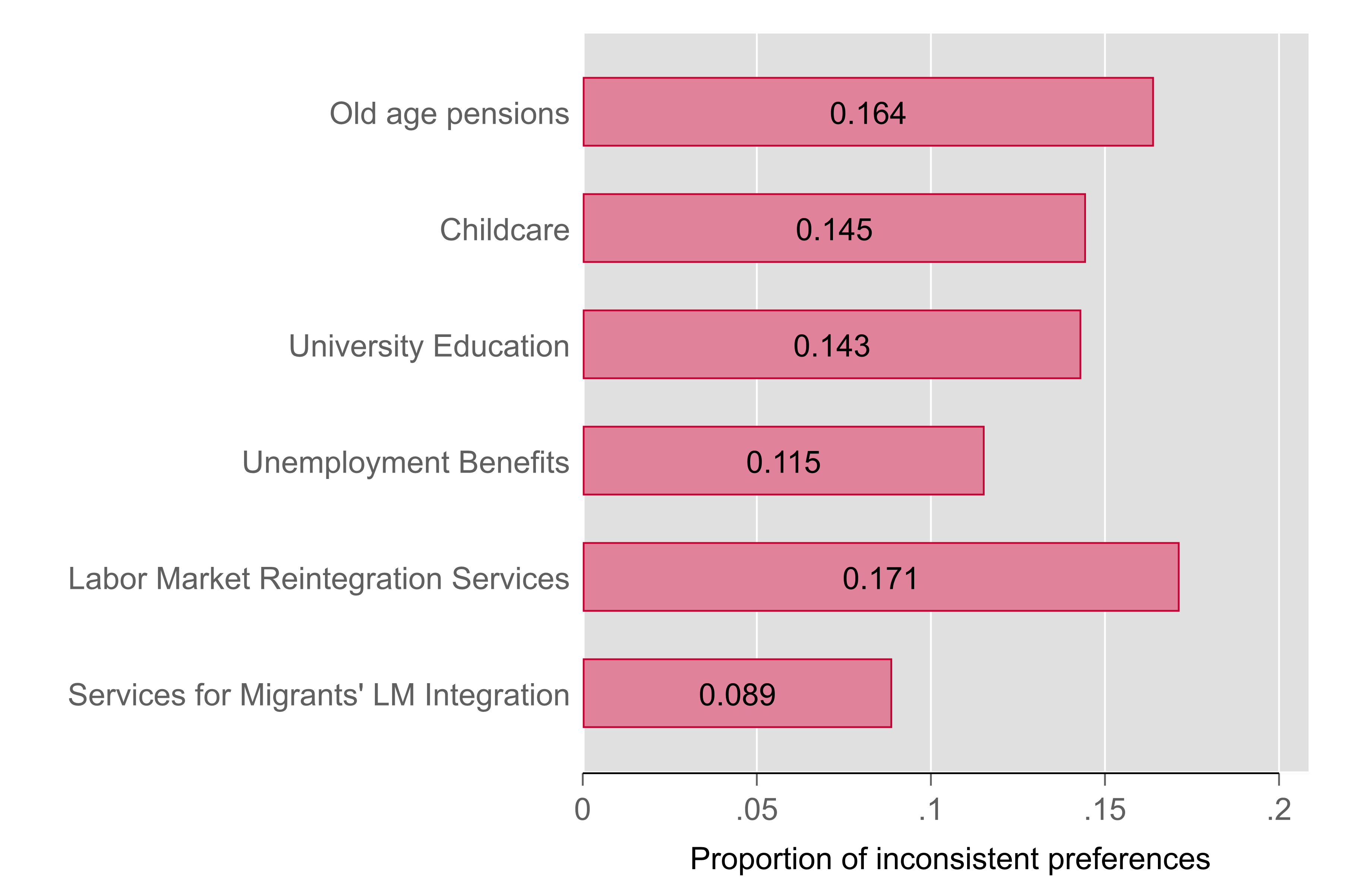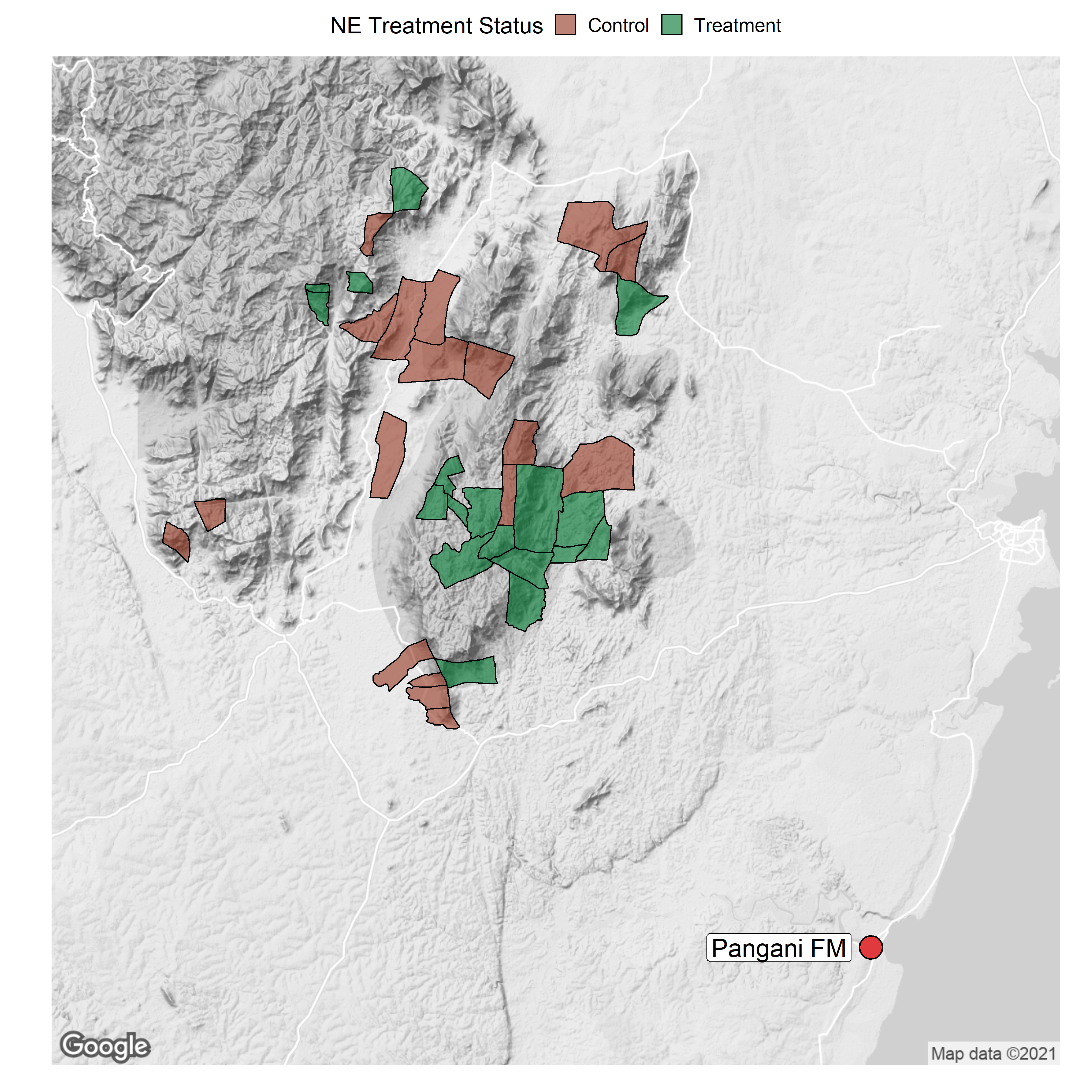Voters’ Opinions on Welfare Policy Reform Might Be More Logical Than We Think
When it comes to the topic of welfare reform – whether it is in pensions, unemployment benefits, or childcare – many assume that public opinion is uninformed and scattered on these topics. This belief about public opinion on complex policy issues has influenced how researchers and policymakers think about citizen engagement. However, our recent study paints a different picture: most people hold remarkably consistent views about their priorities for welfare state reform, even on complex policy tradeoffs.
Why Does Attitudinal Consistency Matter?
Attitudinal consistency refers to how logically structured people’s preferences are. Imagine being asked whether childcare provision should be improved, even if that came at the cost of reducing maximum pensions slightly; and then asked to evaluate the expansion of tertiary education for disadvantaged families even if that meant introducing higher fees for high-income students. Answering consistently across different scenarios requires clear priorities across various welfare policy issues and the ability to avoid contradictory positions.
For policymakers and researchers, understanding whether citizens have coherent preferences is crucial. In fact, researchers have been asking people to evaluate increasingly complex policies and reforms on a myriad of topics, like climate change mitigation policies, immigration regulation, or economic policy. Yet, few efforts have been devoted to assessing whether people actually have consistent and structured opinions on these topics. If they do not, survey responses may merely reflect transient attitudes, limiting their value for evidence-based policymaking.
How We Tested Public Opinion on Complex Welfare Reforms
Our study surveyed over 12,000 individuals in eight Western European countries. Instead of asking general questions like “Do you support expanding unemployment benefits?” we presented specific and challenging welfare reform scenarios.
For example, participants were asked to rank their priorities for benefit expansion (and retrenchment) across six policy fields, indicating where they believed expansion (and retrenchment) was most important, comparing, for instance, improved childcare to better university education. They also had to respond to specific tradeoff questions, such as: “Should unemployment benefits be expanded, even if it means certain cutbacks in pensions?” These questions aimed to reveal whether people could balance tradeoffs and identify their priorities.
We examined two forms of consistency:
- Logical consistency: Do people avoid outright contradictions, such as supporting both expanding and cutting the same policy area?
- Relational consistency: Do preferences expressed in one context (e.g., prioritizing unemployment benefits) align predictably in others (e.g., agreeing to reduce pensions to fund unemployment benefits)?
What We Found
Contrary to earlier assumptions, most people demonstrated high levels of attitudinal consistency. Even when faced with tough tradeoffs, a majority avoided contradictions and maintained structured preferences. For instance, only 4-5% of participants gave logically inconsistent answers, such as supporting both expanding and cutting pensions.
When asked to rate their priorities by distributing 100 points to the expansion and retrenchment of six policy fields (a demanding task), most participants displayed stable preferences. 76 percent of respondents displayed logical inconsistencies in no more than one policy field. This shows clear patterns about the policies respondents valued most. Figure 1 displays the proportion of inconsistent responses for each of the six policy fields participants were asked to prioritize. There is some variation across fields, with inconsistent priorities being less prevalent in the field of providing services for the integration of migrants in the labor market, and more common for the general provision of labor market reintegration services (for the general population).
Even in the most complex tradeoff scenarios—where participants had to weigh costs directly—responses aligned with their earlier preferences. For example, someone prioritizing unemployment benefits in the rating task was more likely to accept a tradeoff favoring those benefits, even if it meant cutting pensions.
Consistency Isn’t Just for Experts
One of the most interesting findings of our research was that this consistency is not limited to specific groups of people. Regardless of different socio-demographic characteristics most respondents displayed similar levels of attitudinal consistency.
We anticipated that factors like education, age, income, or political interest might lead to significant differences in consistency, but these differences turned out to be minimal.

For instance, Figure 2 shows how different characteristics of individuals are related to the number of inconsistent replies they provided in the rating scenarios (where they had to indicate their priorities for where benefit expansion, and retrenchment, were more important across the six policy fields reported in Figure 1). We only find slight differences by any of these characteristics. Middle-aged respondents showed slightly higher consistency, likely due to being more engaged in public affairs at this life stage. Women displayed marginally more consistent preferences than men. Political interest had a small, negative effect on the number of inconsistent preferences, as expected. People more invested in politics tended to give more structured responses.
However, the overarching finding is that structured attitudes are not confined to any one demographic. This universality suggests that most people are capable of making thoughtful, coherent decisions about welfare reform, even under complex scenarios.
Conclusion: A More Coherent Public Than We Thought
These findings challenge existing beliefs about the public being incapable of engaging with complex policy issues. It turns out that people can handle nuanced tradeoffs and articulate their priorities when given the opportunity.
For researchers, this supports the use of more sophisticated survey tools that assess relative preferences and tradeoffs. For policymakers, it means that if citizens can think systematically about welfare reforms, decision-making processes should reflect and respect this capacity. Transparent discussions about costs and benefits could engage the public more effectively.
Our study reveals a hopeful truth about public opinion: even when faced with complexity, people are capable of structured and consistent thinking about welfare policies. So, the next time someone dismisses public opinion as scattered or incoherent, consider the evidence: the public might be more structured than often assumed.
Notes
Fig. 1: Proportion of inconsistent responses in priority rating items. Bars report the percentage of respondents providing logically inconsistent replies, i.e., prioritizing both the expansion and retrenchment in one policy field (relative to the other fields). For a full account and description of these results see the published article.
This blog piece is based on the forthcoming Journal of Politics article “Attitudinal Consistency in Citizens’ Social Policy Preferences” by Macarena Ares, Silja Häusermann, Matthias Enggist, and Michael Pinggera
The empirical analysis has been successfully replicated by the JOP and the replication files are available in the JOP Dataverse.
About the Authors
Macarena Ares is Serra Húnter Assistant Professor in the Department of Political Science at the University of Barcelona. Her research focuses on class politics, distributive conflict over welfare policies, and corruption voting. You can find more details about her work here: https://macarenaares.com/
Silja Häusermann is Professor of Political Science at the Department of Political Science, University of Zurich. She studies welfare state politics and party system change in advanced capitalist democracies. You can find more details about her work here: http://siljahaeusermann.org/
Matthias Enggist is Postdoctoral researcher in Political Science at the University of Lausanne. His research focuses on welfare state politics, public opinion, party competition and immigration. You can find more details about his work here: https://edpub.unil.ch/interpub/noauth/php/Un/UnPers.php?PerNum=1253906&LanCode=8
Michael Pinggera received his PhD in Political Science from the University of Zurich. His research interests include welfare state politics, party competition and public opinion.



